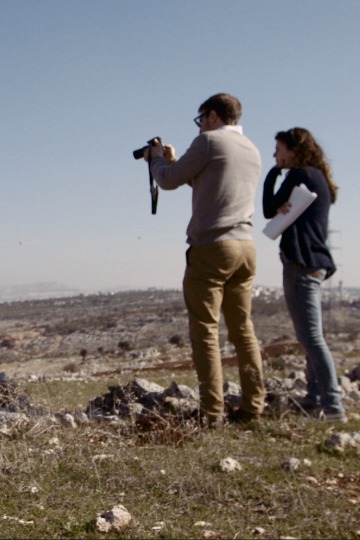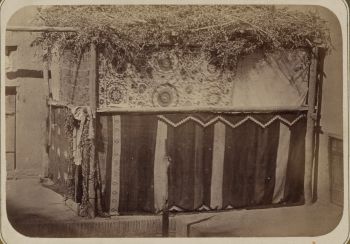Gilead Sher / INSS (October 28, 2015)
Revoking Israeli residency of Palestinians beyond the separation barrier in East Jerusalem is difficult from a
legal point of view, as there is no law that authorizes Israel's government to do so. Read More >
1. Bills, Resolutions, and Letters
2. Hearings
3. On the Record
Note: Recently defenders of Israeli Prime Minister Netanyahu have been arguing that settlement construction has actually decreased under Netanyahu (and that he has thus been unfairly criticized when he deserves to be praised). This argument is based on a single, misleading statistic – a case APN and Peace Now came together to make in a joint report laying out the facts of Netanyahu’s real settlements record, here.
Jointly authored by Lara Friedman, APN (USA) and Hagit Ofran, Peace Now (Israel)
Defenders of Israeli Prime Minister Netanyahu have seized on a recent report in Haaretz to argue that Netanyahu’s record shows that he has, in fact, been less pro-settlements than his detractors (including Peace Now) have suggested. Their argument hinges on a single statistic raised in that story: the average number of construction starts in settlements per year, as counted by the Israeli Central Bureau of Statistics (ICBS), across the 6 years Netanyahu has been in office, compared to that same number for previous prime ministers over the past 20 years. But as is often the case when it comes to statistics, the devil is in the details, and a single statistic taken in isolation will always obscure more than it reveals.

Stay informed and up-to-date about the work of APN and Peace Now. News, op-eds, action alerts and more sent straight to you.
Don't miss
out!
Subscribe to APN Weekly Updates
Get connected to our Action
Network; receive updates on important issues sent directly to your email address; and receive information
about special events going on in your area!
Dennis Ross | Farrar, Straus and Giroux (2015)
Book Review (Kirkus
Reviews) | CampusBooks
Fresh Air (2015)
Twenty years ago, Israeli Prime Minister Yitzhak Rabin was
killed by a Jewish religious zealot. Dan Ephron, author of Killing a King, discusses the assassination and
its effect on the peace process. (37:59) Listen >
Apologies for the brief hiatus in the publication of the Round-Up, which was the result of the High Holiday
schedule and travel.
1. Bills & Resolution
2. FY16 NDAA Moves Ahead
3. Looking Back at JCPOA-looza (pronounced “Jac-Po-a-looza”)
4. JCPOA in the Senate – the Filibuster (Faux) Controversy
5. JCPOA on the Hill – Farce in the House
6. JCPOA & Iran on the Hill – What Next?
7. Hearings
8. Members on the Record
Ned Lazarus / Palestine-Israel Journal (October 1, 2015)
Hundreds of participants of youth peace education programs - Jewish, Israeli, Israeli Palestinians, and
Palestinians in the Occupied Territories - have gone to engage in peace-building efforts. Read More >
 Sunday night, September 27th, the Jewish holiday of Sukkot began. During the week-long
holiday, Jews build a special kind of home to dwell in for the week, called a sukkah. The
sukkah is a deliberately temporary house, which can have no more than one permanent wall, and whose
roof must be open to the sky, covered only partially by natural materials such as branches. Over the course of
the week, the Sukkah is supposed to be one’s home: to eat meals in, to celebrate, and even to sleep in.
Sunday night, September 27th, the Jewish holiday of Sukkot began. During the week-long
holiday, Jews build a special kind of home to dwell in for the week, called a sukkah. The
sukkah is a deliberately temporary house, which can have no more than one permanent wall, and whose
roof must be open to the sky, covered only partially by natural materials such as branches. Over the course of
the week, the Sukkah is supposed to be one’s home: to eat meals in, to celebrate, and even to sleep in.